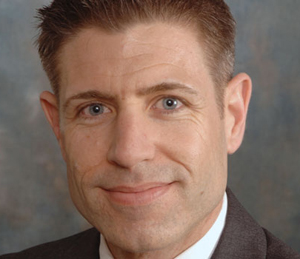Securing the City

|
Meet Miki Calero, CSO for the city of Columbus, Ohio. As the city’s top security executive, he establishes and leads the enterprise security risk management program for the 15th largest city in the nation. Calero is also one of Securitymagazine’s 2012 Most Influential Security Executives, featured in this issue.
How did your career in security begin? Why did you decide upon this profession?
In 1981, I got a Commodore VIC-20 and learned to program in BASIC. Kids started swapping programs at school, and I remember thinking I should make copies of my cassette tapes before taking them to school in case one was “borrowed.” I also figured out I should buy VIC-20 cassette tapes because some of my programs got corrupted when I saved them to regular audio cassettes. And why should I not remove my “special” lines of code before sending a program to the Sunday radio show to get transmitted/shared over the air?
The first time I thought of physical and information security together was when I saw the closet that housed our building’s patch panel unlocked as I walked past it every day. It was not unusual for the Tech to leave the telephone line tester in the unlocked closet over the weekend – and me thinking how a simple padlock would squelch this phreaker’s dream.
Serving in the Army focused me on security and added a leadership perspective. I went from ensuring the SOP at one unit reflected physical security requirements for my hangar and accountability of aircraft COMSEC/CCI (Communications Security/Controlled Cryptographic Items), to overall System Security Officer responsibilities at an Army learning institution. After that, it’s been all about bigger-better-faster security leadership – while staying true to the long-standing commitment I developed in the Army to our country’s security at-large.
What qualities do you have that you believe make you a leader?
Creativity, vision and caring. Having a vision and establishing the course, not just for your organization, but a greater context, an entire industry or sector. Creativity to come up with the vision itself and how to make it happen. And caring that is well placed, so it’s well received and reciprocated, leading to cohesive teams that work as one, take action with as little as a single guidance statement. You cannot learn
caring - you can learn to fake caring. Even years after leaving the Army, I still subscribe to the leadership mantra, “take care of your people, and they’ll take care of you.”
What motivates you?
The satisfaction gained from knowing that a 45-minute free-form exchange of ideas will influence the course of the security industry. It’s the privilege of leading undeniably-dedicated and committed teams that despite all odds will not stop until they analyze a forensic image for the piece of evidence that will make the case, go above and beyond their responsibilities by driving to a remote site to confirm a maglock failure, never question spending hours staring at whiteboards and computer screens over stale pizza and cold coffee in response to an incident. From their tenacity flows energy that fuels the desire to push myself above and beyond.
What advice would you give to someone interested in the security field?
Be willing to be people-oriented. Learn to work with anyone to develop partnerships/seek commitments and deliver results together. Security is not a back-office job. You will be in the front lines, the first to respond to a security incident reporting status to the Executive Crisis Management Team or CEO. Never stop learning security. Recognize this knowledge will never be enough because “the other side” is doing everything they can to stay ahead of you. Seek certification as confirmation/validation of your skills and experience doing the job. Do not get certified to get a position and hope you will develop the skills and [gain the] experience on-the-job.
What keeps you up at night?
Literally, thoughts such as these do keep me up at night and/or wake me up to write them down:
• What have I learned today that will make a difference in security?
• Synthesizing concepts into viable approaches to improve security.
• How can I seize on a current security problem and develop a way to address a future need?
• Why does an incident need to happen for security to be the focus again?
• How can I prevent that next incident from happening in the first place?
What do you like to do in your free time?
Writing, painting, mountain biking, snowboarding, rock climbing with my family and friends. I also enjoy Ishi wo taten koto, which is the Japanese art of making gardens.
Read more exclusive interviews with leading security professionals at SecurityMagazine.com/columns/SecurityTalk
Looking for a reprint of this article?
From high-res PDFs to custom plaques, order your copy today!







